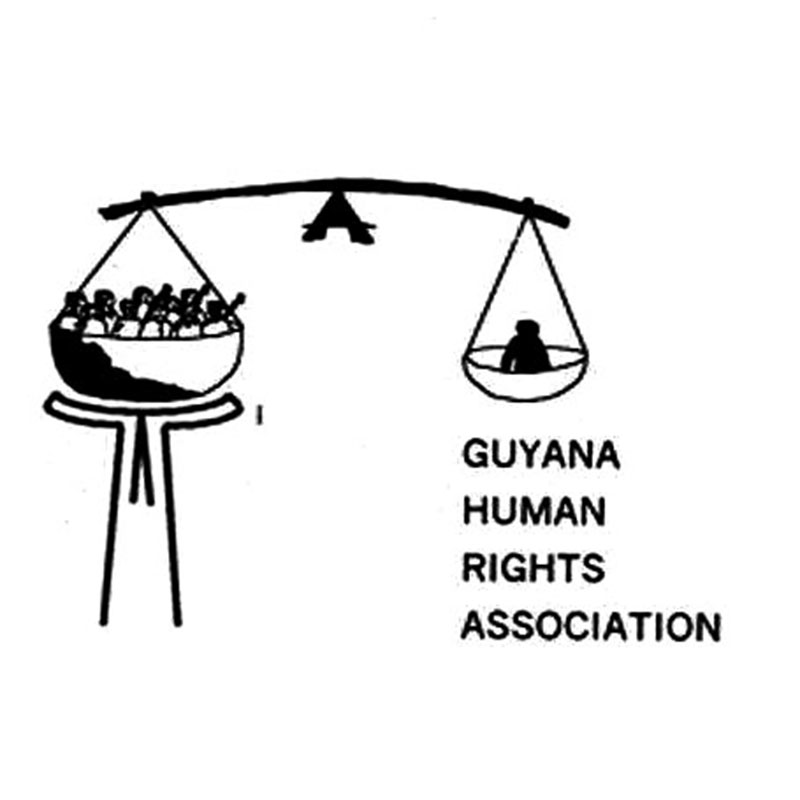Stating that no other single matter has so clearly exposed the fragility of women’s rights here, the GHRA yesterday called for the widespread indignation at the incidents surrounding ex-Local Government Minister Nigel Dharamlall to be harnessed to reorder power relationships affecting females.
Dharamlall possibly avoided a charge of rape after the complainant eventually decided to issue a `No Further Action’ statement to the police.
Contending that sexual violence towards younger females was at epidemic levels here, the Guyana Human Rights Association (GHRA) said in a statement that the Dharamlall incident is a “wakeup call to all organizations who provide ‘technical’ support services to victims of sexual violence to adopt a more robust, rights-based approach to their work”.
The GHRA said: “Sexual violence towards younger females in Guyana is nothing short of epidemic. It is to be found in families between older male relatives and young girls, between female students and teachers, religious leaders, rapacious landlords, exploitative employers and abusive boyfriends and school-girls being enticed by lunch money and rides in cars from big men.
“These relational dimensions anchor women in situations of abuse, exploitation, fear and ignorance. The common factor in all these relationships is the imbalance in power.
“A combination of party paramountcy and chauvinist culture appear to have successfully gotten rid of the allegations (against Dharamlall), it is not yet clear whether tables will be turned and the alleged victim charged with false allegations. No other single incident has so clearly exposed the fragility of women’s rights in Guyana”.
It stated that the general public was scandalized by responses ranging from “spineless leadership to callous indifference and disregard for the emotional needs of the victim”. The human rights body argued that the central priority of sexual violence cases, namely the welfare and emotional needs of the victim, were subsumed by “isolation and detention”.
The GHRA said that the incident in question was a major test of the extent to which the reforms in the Sexual Offences Act of 2010 had become part of the culture of the legal, welfare and judicial institutions.
The human rights body pointed out that the Act promoted creation of the Child Welfare Centre and the abolition of Preliminary Inquiries (PI). The GHRA said that PIs had deteriorated to time-wasting, victim-baiting openings for lawyers. Eventually, a specialized Sexual Offences Court came into being, GHRA said, and the treatment of complainants became more professional and sensitive. In addition, use of rape kits, counsellors and women officials became more prominent in both police stations and court proceedings.
“How over the interim decade did we get from this progress in managing of sexual violence cases to the national shamefulness of the Dharamlall matter?”, the GHRA questioned.
It said that a response to this question needs to start with a realization that the problem of sexual violence in the society is far more pervasive than the matters that reach to court.
“Reforms of the legal system response to sexual crimes only take effect once the victim has set the process in motion by making a report. However, the vast majority of victims of sexual violence are vulnerable by reason of age, poverty, social class, mental health, alcohol, drugs and isolated villages. Their cases do not reach the legal system.
“As a confrontation between the strength of the rights of women in Guyana versus political, religious or economic values of patriarchy, this was no contest”, the GHRA declared.
The GHRA said that among the many lessons to be learned from the Dharamlall matter and one that looms large for it “is the extent to which progress in the status of women has been built on the misleading premise that the empowerment of women can be achieved without the disempowerment of men. This encourages the illusion that empowerment is infinitely expandable and does not require confronting the myths and prejudices that make patriarchy so enduring”.
The human rights body said that many aspects of the case in question have been deliberately obfuscated and confused to draw firm conclusions. However, it said that the overall deterrent effect on young women coming forward to register rape complaints in future will remain the “abiding signal contribution undermining women’s rights to bodily and mental integrity”.
The GHRA added that it is clear that while acknowledging the improvements needed in the legal and judicial systems, the fundamental concern must be the welfare and well-being of the “large number of vulnerable women and particularly girls who will not benefit from the judicial system until rights of women are available to all”.
For the police and prosecution, and the population at large, it noted that the goal of a successful prosecution in rape cases is a conviction.
“For the rape victim, on the other hand, a successful outcome is primarily a matter of restoring her self-belief, safety, well-being and a vindication that she is not a liar. The major problem for the victim is the extent to which she is willing to risk her future welfare and well-being when setting the process in motion by reporting to the police. No other crime depends on the consent of the victim so completely as those involving sexual violence”, the GHRA posited.
After the decision of the Chambers of the Director of Public Prosecutions to advise the police that there was no basis for a charge against the minister, President Irfaan Ali announced that Dharamlall had resigned from Cabinet and as a Member of Parliament.





